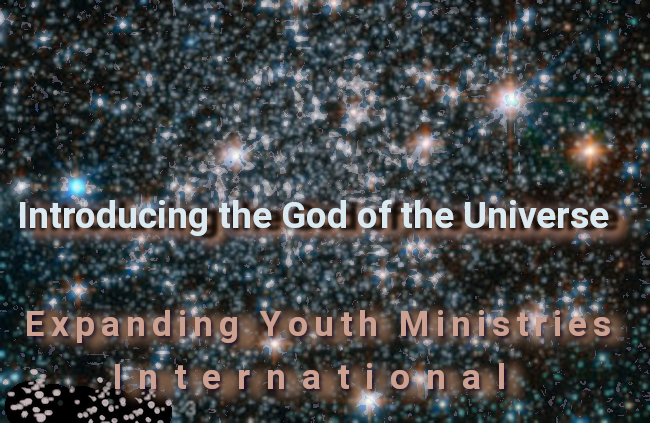
Declare His glory among the nations, His wonders among all peoples.
(1 Chronicles 16:24 nkjv)
THE PRIVILEGED PLANET
(The Search For Purpose In The Universe)
B. Chapter Search: (see titles and times below)
C. Special Bonus DVD Features: (more than 40 minutes of extras)
| B. Chapters: |
min. & secs. |
|
1. Pale Blue Dot: Spectacular introduction, significance? |
0:00-2:25 |
|
2. Copernican Principle: Revolutionary discovery, implications, Carl Sagan |
2:25-9:09 |
|
3. Search for Life: SETI, Other Worlds? Other intelligent beings? |
9:09-14:00 |
|
4. Liquid Water: Unique liquid, absolute essential |
14:00-17:26 |
|
5. Recipe for Life: narrow parameters, essential ingredients |
17:26-24:11 |
|
6. Cosmic Lottery: mathematical odds, implications |
24:11-26:42 |
|
7. Perfect Solar Eclipse: astounding event, solar discoveries, size, distance. |
26:42-34:16 |
|
8. Correlation: probabilities, incredible coincidences |
34:16-35:53 |
|
9. Atmosphere: ideal, essential, fringe benefits |
35:53-40:48 |
|
10. Milky Way: incredible location, double endowment |
40:48-47:19 |
|
11. Intelligible Universe: ordered universe, simple and profound, why? |
47:19-58:10 |
|
12. Credits: |
58:10-59:50 |
C. Special Bonus Features: * ( 32 min live video and 47 photos plus text & refs.)
* Journey to the Edge of the Universe: Video trip through space with commentary. (6:55)
* The Search for Earth-Life Planets: Text & video interview (4:20) & 13 text & photo
slides.
* Questions and Answers: Excellent material; video interviews with notable scientists:
1. Does the monotheistic tradition of an intelligible universe have any impact on modern science? (1:17)
2. What is the "Great Copernican Cliche"? (1:37)
3. Is there any connection between the beliefs of Nicholas Copernicus and the Copernican Principle? (1:05)
4.What is the Kalam Cosmological Argument? (1:09)
5.All of the galaxies in the universe are receding from each other. What are the implications of this fact? (1:02)
6.Astronomer Robert Jastrow discusses his views on the origin of the universe. (1:30)
7.What is meant by the idea of a universe fine-tuned for life? (1:45)
8.What are the primary naturalistic explanations for the fine-tuning of the universe? (2:23)
9.From a scientific perspective, what are the problems with the hypothesis of multiple universes? (0:35)
10.If life is discovered somewhere else in the universe, is it likely to be carbon based? (1:10)
11.What objections has the hypothesis of a correlation between complex life and scientific discovery received? (2:13)
12.In what sense is Earth optimized for scientific discovery? (1:43)
13.Is the hypothesis of a correlation between life and discovery based upon empirical evidence or metaphysical philosophy? (1:12)
14.Will there be future opportunities to test this hypothesis? (0:56)
15.research scientist Candice Hansen (the first person to see the famous Voyager pictures of Earth) describes her experience. (1:53) (Total Q & A time = 21:30)
* Earth from Space: 47 Spectacular and stunning photos of Earth from space!
* Reference Library:
The Privileged Planet: Jay Richards & Guillermo Gonzolez
The Book of the Cosmos: Dennis R. Danielson
The Case for a Creator: Lee Strobel
God and the Astronomers: Robert Jastrow
The Mind of God: Paul Davies
Rare earth: Peter Ward 7 Donald Brownlee
"The most habitable places in the universe also offer the best opportunity for scientific discovery. I believe this
implies purpose" Guillermo Gonzolez - Astrobiologist
Many scientists have claimed that Earth is an ordinary speck of dust adrift, without purpose or significance, in a vast
cosmic sea. Yet current astronomical evidence seems to suggest just the opposite.
We now know that a rare and finely tuned array of factors makes Earth suitable for complex life. We depend on our planet's
oxygen-rich atmosphere, its large moon, its planetary neighbors, and its precise location within our solar system and
Milky way galaxy. But there is more. The same factors that that make a planet like Earth hospitable for life also provide
the best conditions for scientific discovery.
Through stunning computer animation, interviews with leading scientists and spectacular images of Earth and the cosmos,
The Privileged Planet explores a startling connection between our capacity to survive and our ability to observe and
understand the universe.
Is this correlation merely a coincidence? Or does it point to a deeper truth abput purpose and intelligent design
within the cosmos?
Narrated by John Rhys-Davies (The Lord of the Rings)
Media Library
Media for all Schools
Media for Religious Schools
Classified by Topics - for all Schools
Classified by Topics - for Religious Schools
Moody Science Collection - Subject Specific Short Videos
We have an extensive library of videos that we are ready to show in your public or private school classroom or assembly.
We are glad to lend them to churches and Sunday Schools, and religious schools as well.
Naturally a good teacher wants to know what kind of videos we have, exactly what is on them, and how long a showing of even just a
specific part will be. To help you with your lesson planning we want to put our complete catalogues on this website. The links
above take you to several specific lists. With time we will add a still more detailed page for most videos.
As a teacher, you will be happy to know that we have prepared some helpful teaching plans, and quizzes to help your students
review what they saw in the video. We want to help you make this class time as efficient and effective as possible. Please
get in touch so we can fax these Plan and Quizzes to you.
Please use our booking form to contact us about a showing. There is no
charge, but we do appreciate donations in whatever amount to continue this service.